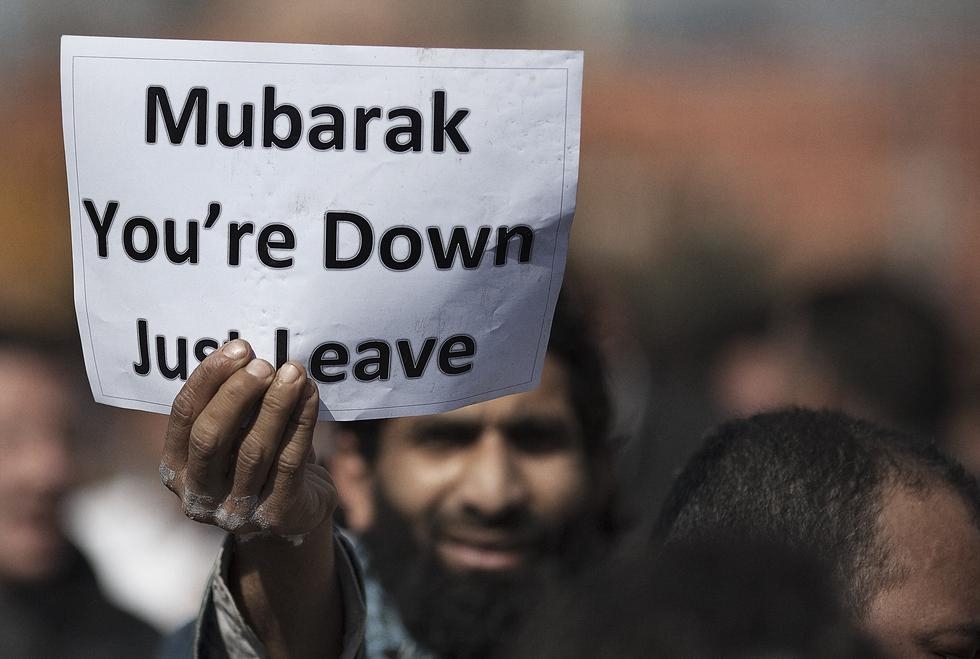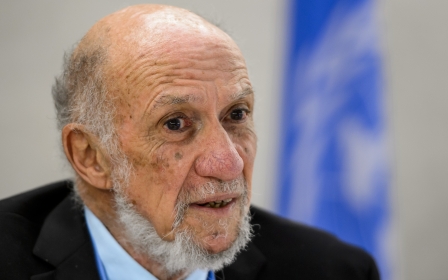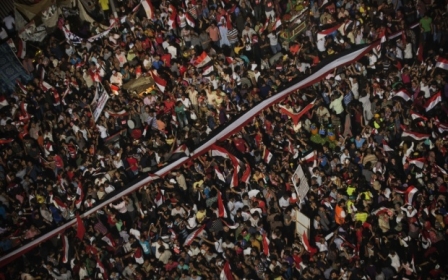Egypt TV drama on 2011 uprising sparks controversy

A TV drama by veteran Egyptian comedian Adel Emam that sheds light on Egypt's politics ahead of the 2011 uprising is causing controversy in the country.
The series, Ostaz We Raees Qesem, which translates as Professor and Department Chair, tells the story of a leftist university professor who is angry about the political situation in Egypt before the 2011 revolution.
The drama, however, criticises the Arab Spring revolutions of 2011.
At one point it shows a Syrian activist, who was a staunch supporter of a popular revolution against President Bashar al-Assad, but later switches sides.
“The message of the drama is very simple, that the January revolution had destroyed the country and the youth had been paid agents,” Sameh Samir wrote on Facebook.
Another Facebook user said that “police appear so cute in the series”.
Political turmoil
Since 2011, Egypt has been dogged by four years of political turmoil, which also saw the toppling of Mohamed Morsi by the military.
“I don't know which one is worst: Ostaz We Raees Qesem or Haret al-Yahood [The Jewish Alley],” Abdullah al-Oteibi tweeted, in reference to another soap opera on the Jewish community that lived in Egypt in the 1950s.
Critic Tarek al-Shenawy believes that Emam has put himself in a “political and art dilemma”.
“Emam has defended Mubarak’s regime and the grooming of Mubarak’s son for power, so it was difficult for the audience to separate between his [political views] and his art works,” al-Shenawy told Anadolu Agency.
He, however, insisted that the actor “has the full right to express his political views through art”.
Defying critics, Emam called on viewers to practice patience until the series is aired in full.
“The series does not speak in the favour of any political regime,” Emam said. “The drama is still being aired and viewers should wait until the end to judge it.”
New MEE newsletter: Jerusalem Dispatch
Sign up to get the latest insights and analysis on Israel-Palestine, alongside Turkey Unpacked and other MEE newsletters
Middle East Eye delivers independent and unrivalled coverage and analysis of the Middle East, North Africa and beyond. To learn more about republishing this content and the associated fees, please fill out this form. More about MEE can be found here.




